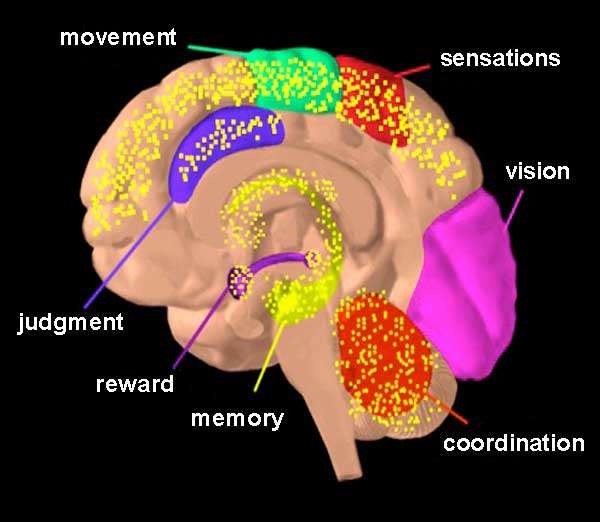Exploring the Therapeutic Effects of Marijuana Without the High
Medical marijuana appears to be on a roller coaster march towards legalization in the United States. As the general public learns more about the effects of marijuana, its stance is softening. Changing attitudes can be observed in the high number of states that have legalized medical marijuana (33 and counting). Statistics show that about 62% of Americans favor the legalization of medical marijuana and many top politicians have put their weight behind legalization.
However, usage statistics do not match the changing attitudes. According to a Federal survey, just 15% of Americans that are 12 years or older used marijuana at least once in the year 2017. The same survey revealed that only 3 million people (0.9% of the population) were open to trying it for the first time. As much as people realize the potential benefits of medical marijuana, a lot are still skeptical about using the drug. There are many conspiracy theories that have tried to account for this disparity. From a medical perspective, however, the plausible explanation is that a lot of Americans are not so keen on getting ’high’.
Admittedly, psychoactive and potentially addictive effects of medical marijuana are often overstated. But the fact that they exist cannot be disputed. Tetrahydrocannabinol (THC), one of the two major components of medical marijuana, is the compound responsible for the ‘high’ you feel after taking medical marijuana. Cannabidiol (CBD) is the other major component of the cannabis plant. For a long time, most of the therapeutic benefits of cannabis have been wrongly attributed to THC. In the past decade, however, many of these effects have been demystified. Research has shown that CBD, a compound that was thought to be inactive, also possesses amazing therapeutic benefits. This article attempts to explore the benefits of CBD and its potential to provide the therapeutic benefits of medical marijuana without the high.
What Diseases can CBD Help?
A lot of research has been carried out to investigate the therapeutic benefits of CBD. From sleeping disorders to chronic pain the list of diseases it can help with is quite long. Athletes have been exploring CBD and how it can help post work out for performance enhancement. But we’ll briefly discuss a few of the benefits of medical marijuana…
Epilepsy:
CBD is known to help prevent seizures in epileptic patients, especially children suffering from Dravet Syndrome- a severe intractable form of epilepsy that does not respond to most conventional anti-seizure medications. A clinical trial investigating the effect of CBD in pediatric epilepsy showed amazing results. 90% of the 74 patients monitored reported a significant reduction in the frequency of seizures.
In 2018, the FDA issued the first-ever approval for a cannabis-based drug- Epidiolex. Epidolex is basically CBD solution and it was approved for the treatment of Dravet and Lennox Gastaut syndromes; two rare and severe seizure disorders.
Anxiety and PTSD:
A review conducted by researchers at New York University School of Medicine confirmed there is enough evidence to conclude that CBD can be used in the treatment of obsessive-compulsive disorders (OCD) and some other types of anxiety disorders. It can also help in the management of post-traumatic stress disorder (PTSD). The mechanism of action is thought to be similar to some antipsychotic medications and there have been reports that CBD displayed some activity in the treatment of schizophrenia.
Alzheimer’s and Parkinson’s Diseases:
The neuroprotective properties of CBD have been well documented. Studies have shown that these properties may be useful in decelerating the progression of Parkinson’s and Alzheimer’s diseases.
Chronic Pain:
Early research reveals that CBD may be of benefit in the control of inflammation and chronic pain. Currently, clinical trials are underway for Sativex- a pharmaceutical preparation containing CBD and THC. Results show that 58 rheumatoid arthritis patients involved in the trial reported significant improvement in sleep quality and reduction of painful sensations.
Studies in rats also showed that CBD helped reduce joint pain and inflammations. Another review of several clinical trials and laboratory studies on CBD revealed that adults suffering from chronic pain are likely to experience improved symptoms when they take CBD.
Cancer:
The American Cancer Society agrees with the claim that effects of marijuana can help cancer patients experiencing nausea and vomiting as side effects of chemotherapy. CBD has also proved useful in helping cancer patients cope with their pain. Although there is no conclusive evidence, studies have shown that CBD may be effective in mitigating the spread of cancer cells in some types of cancer.
Hangover and Substance Abuse:
Interestingly, CBD is known to antagonize the ‘high’ caused by THC. CBD oil is often recommended for people suffering from a hangover after taking marijuana. Studies have also shown that it may help patients struggling with addiction to substances like tobacco and alcohol.
What are the Available CBD Dosage Forms?
Just like medical cannabis, CBD is available in a diverse range of dosage forms. They include:
- Capsules
- Oil for ingestion
- Tincture for sublingual application
- Creams for topical application
- Oil for vaping
- Synthetic CBD
Can CBD Cause Physiological Dependence?
Although CBD is known to cross the blood-brain barrier, it has not been shown to have any potential for addiction or dependence. Unlike THC, CBD does not produce the ‘high’ associated with marijuana but has been praised for its potential therapeutic benefits. The drug is perfectly safe for people that do not wish to experience the psychoactive effects of THC.
What are the Possible Side Effects of CBD?
Prolonged use of CBD at high doses has not been shown to cause any dangerous side effects. Some of the mild side effects you may experience after using CBD include:
- Fatigue
- Diarrhea
- Dry mouth
- Light-headedness
- Weight gain or appetite changes
CBD Isolate vs Full-Spectrum CBD
Asides the various dosage forms, you should also know that there are two major types of CBD- CBD isolate and full-spectrum CBD. CBD isolate comprises 100% CBD while Full spectrum CBD contains CBD alongside the other 80+ cannabinoids found in the cannabis plant. It may also contain some amount of THC (not more than 0.3%). The THC content is negligible and not enough to produce any unwanted side effects.
Although the available studies are not enough to arrive at a definite conclusion, the belief is that Full-spectrum CBD may be more effective than CBD isolate.
Can CBD Interact with Other Drugs?
If you are already on any routine medication, it is important to inform your doctor before initiating CBD treatment. Importantly, CBD has been shown to inhibit warfarin metabolism. The implication is that warfarin would stay in your body for a longer period than usual. Your doctor may want to monitor your clotting parameters and probably reduce the dose of warfarin you’re taking, if necessary. Potential interactions of CBD with other drugs have also been recorded.
How Can I get CBD?
CBD oil is legal in the whole of the United States. It is tempting to opt for the shortcut of ordering CBD online. However, you may be putting yourself at risk when you do this. Most of the CBD oil you would order online are not regulated. It’s easy to purchase adulterated or low-quality forms of the oil. A recent study showed that about 70% of the CBD sold online contains an amount of CBD that is not equivalent to the labeled amount. This should give you an idea of the dangers inherent in purchasing CBD from unlicensed sources.
If you wish to treat any condition with CBD or medical marijuana, it is important to first consult an expert medical marijuana doctor so they can evaluate your case. You would be advised if medical marijuana is right for you and your process of obtaining a medical marijuana card would be facilitated.
Once you obtain your medical marijuana card, you can legally purchase your medical marijuana or CBD product in any licensed dispensary in your area. You can trust the licensed dispensary to store genuine, high-quality CBD products.
Could Low THC Cannabis with Low Effects of Marijuana be the Compromise Everyone Needs?
Studies have shown that THC and CBD work synergistically for most ailments. The effects of THC can be enhanced when used alongside CBD and vice versa. To minimize the unwanted side effects of THC, growers have attempted to cultivate cannabis strains that have low THC. These strains of cannabis have proved quite useful for medical marijuana users who would rather do without the ‘high’. Strains high in CBN content also show less of the THC bliss. They represent the perfect compromise between therapeutic efficacy and an agreeable side effect profile.



Comments are closed.